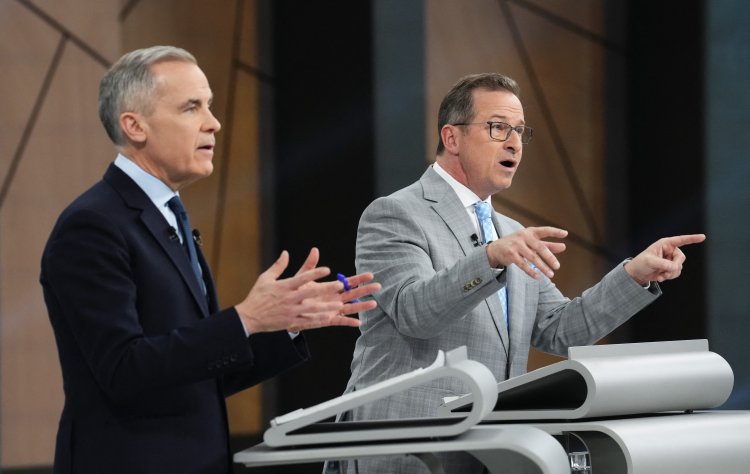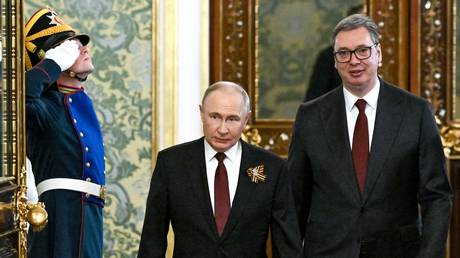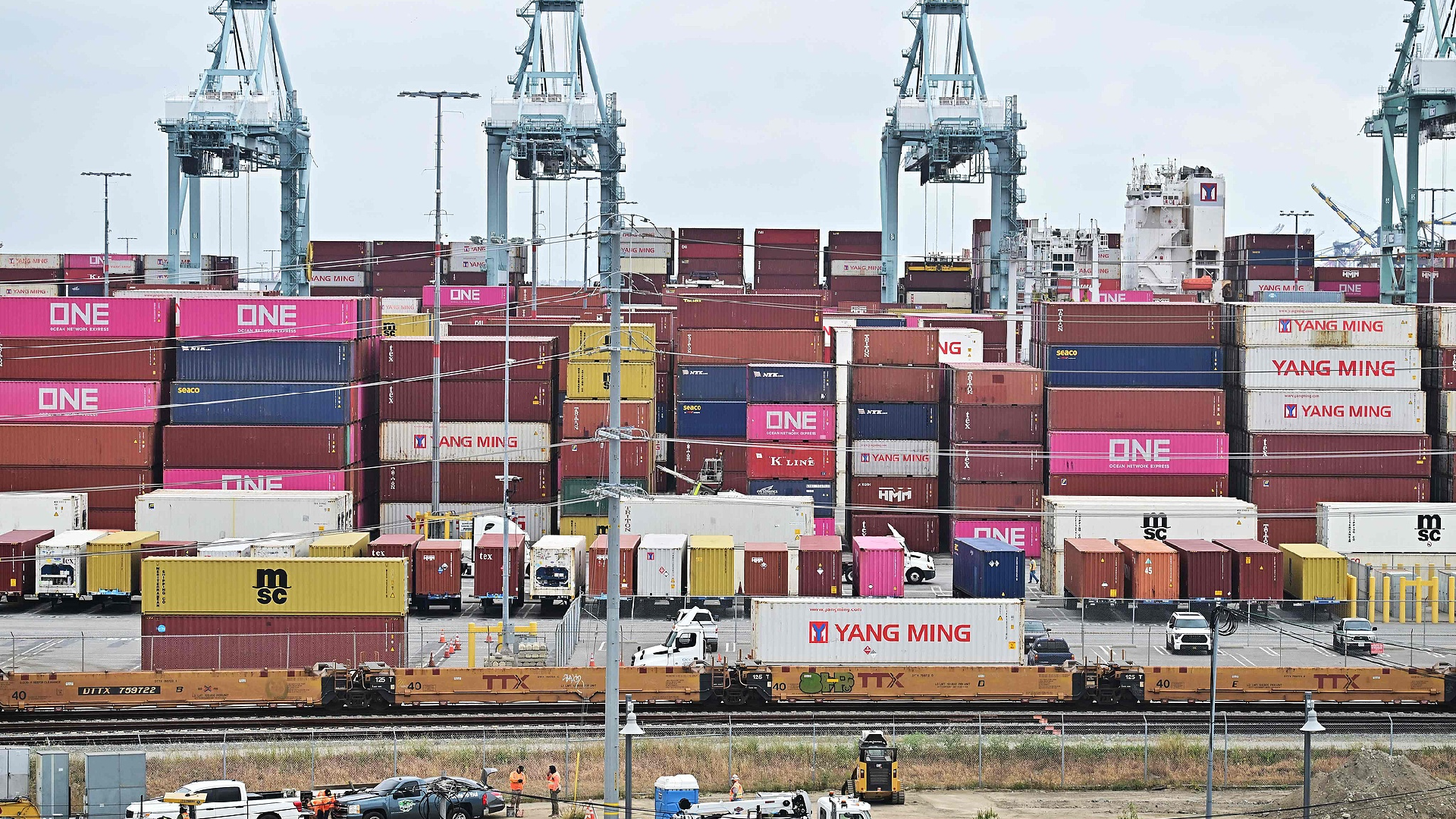Canada Realizes Uniting Against Trump Is Simple
Mark Carney’s message of one people, one country faces challenges due to the complex fabric of Canada’s nationhood.

The reason for this sudden adjustment? A significant Montreal Canadiens game that was set to coincide with the eagerly awaited political clash. Only in Canada.
A pivotal election looms on April 28, which will challenge a fresh interpretation of Canadian nationalism in light of tariffs and threats from U.S. President Donald Trump. Liberal Party leader Mark Carney has dramatically erased a 20-point deficit to secure a leading position in national polls, largely by tapping into a renewed sense of purpose—Canadians have their “elbows up,” Carney remarks, using a phrase well-known to hockey enthusiasts.
However, the complex nature of Canadian identity makes Carney's message of one people, one country difficult to maintain. The debate on Wednesday evening occurred in French, right in the heart of French-speaking Montreal, with an English-language debate scheduled for the following evening. The Bloc Québécois, one of the parties represented during the debate, fields candidates solely in Quebec and explicitly advocates for separatism. Outside the debate hall, in a setting branded by an election thick with patriotism, Canadian flags were notably absent—onlookers eagerly awaiting the candidates instead waved flags from Quebec and Palestine.
Carney is promoting unity in a province where a substantial proportion of voters seek complete independence from the nation. Remarkably, this message is resonating with many of them. A banker with no prior political experience, Carney has swiftly adapted to Quebec’s political landscape, where French serves as both the official and common language and nearly a quarter of Canada’s population resides.
As Philippe J. Fournier, creator of the Canadian electoral projection model 338Canada, notes, approximately 35 percent of Quebecers identify as separatists. Yet, the Bloc Québécois is polling below that in this election cycle.
“Many separatists are supporting Carney,” Fournier states.
This voter profile is curious at first glance—those seeking to leave Canada are backing a candidate whose key campaign goals involve creating a stronger, more unified nation. Notably, Carney’s own command of French is limited, as evidenced during the debate.
The debate itself was relatively respectful and subdued, but any sharp remarks were directed toward Carney. Yves-François Blanchet, leader of the Bloc Québécois, scrutinized Carney for allegedly failing to prioritize the interests of Quebecers, asserting that his party was the sole defender of Quebec’s needs.
“The Quebec economy is different from the Canadian economy, and it has to be treated differently. So far, all we’ve seen is a force to protect the Ontario economy,” Blanchet told reporters after the debate.
Despite this, Blanchet's party, along with the leftist NDP and Conservatives, has recently lost ground to a party led by Carney, who struggled to clearly express his political agenda during the debate in French.
Central to Carney’s traction is, undeniably, the influence of President Trump, who loomed over the proceedings from a distance.
The debate opened with a clip of Trump declaring, “the word tariff is one of the most beautiful words in the dictionary.” Following that, the first two questions directly referenced Trump.
“We are in a crisis. The most serious crisis of our lives,” Carney stated in response to one of the inquiries. “We have to react with strength, which will allow us to succeed with Trump.”
A reflexively anti-Trump stance has assisted Carney in gaining support in Quebec and across Canada.
“In this current situation, Carney’s poor French probably won’t hurt him as much as it would in another context,” explained Catherine Ouellet, a political science professor at the Université de Montréal specializing in Quebec politics, in an interview translated from French. “Normally, not speaking French well would be a bigger liability in Quebec. But right now, the focus is on job loss, recession, and Donald Trump—not language.”
Nevertheless, the debate highlighted the necessity for Carney to carefully navigate his relationship with the Francophone community. He emphasized the vital role of Quebec—and the French language—in the context of Canada, ensuring that he articulated calls to protect the language rather than diminish it. When discussing national interests, he referenced both Canada and Quebec, a distinction that will resonate with French-speaking audiences wary of the former Bank of England governor potentially sidelining Quebec in favor of Ontario.
“Quebecers, like other Canadians, are experiencing economic insecurity and fear of recession. Even those who normally lean toward sovereignty or who usually support the Bloc are less focused on that now,” Ouellet remarked.
Yet, Carney’s endearing, new-to-politics persona and his gradual improvement in French may not suffice in the long run.
“The honeymoon won’t last if he doesn’t work at his French,” Fournier cautioned.
Aarav Patel for TROIB News
Find more stories on Business, Economy and Finance in TROIB business












